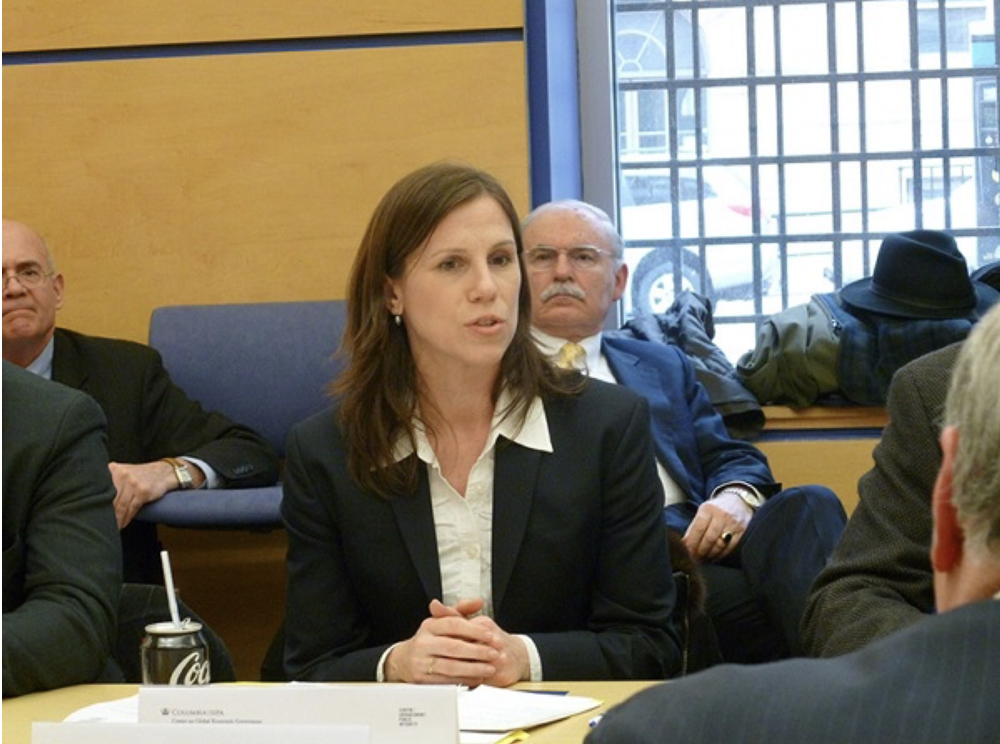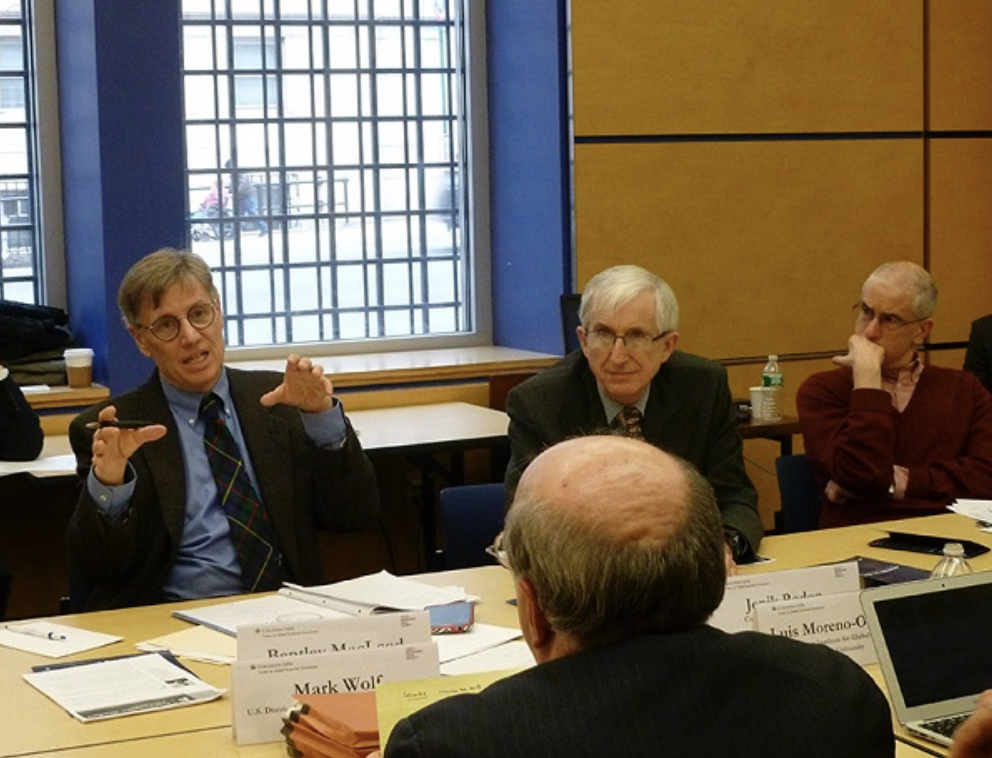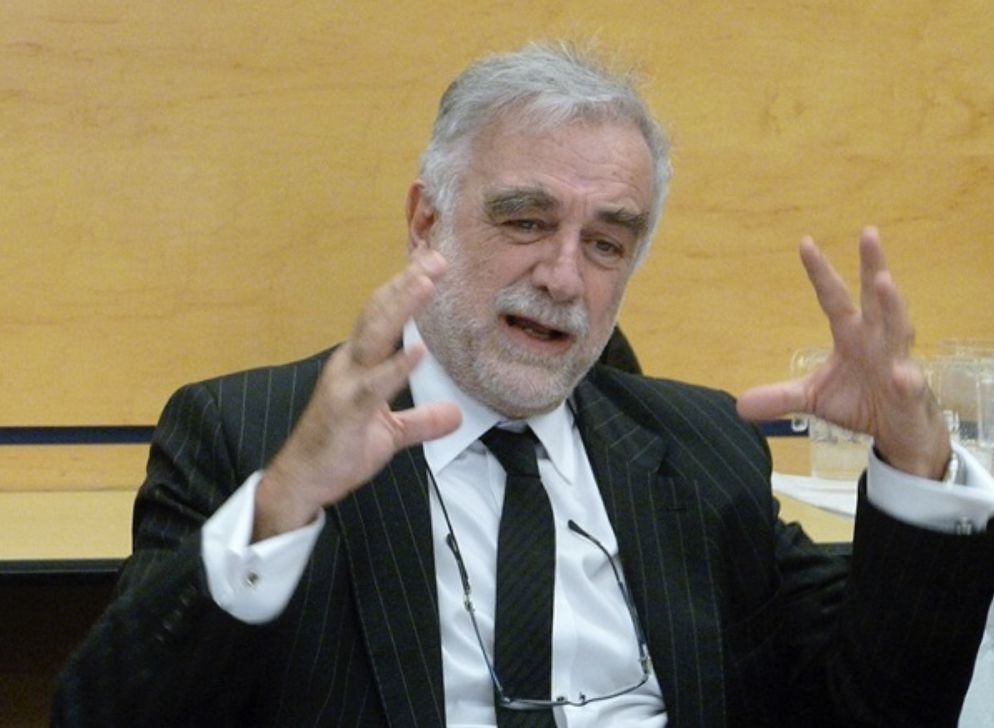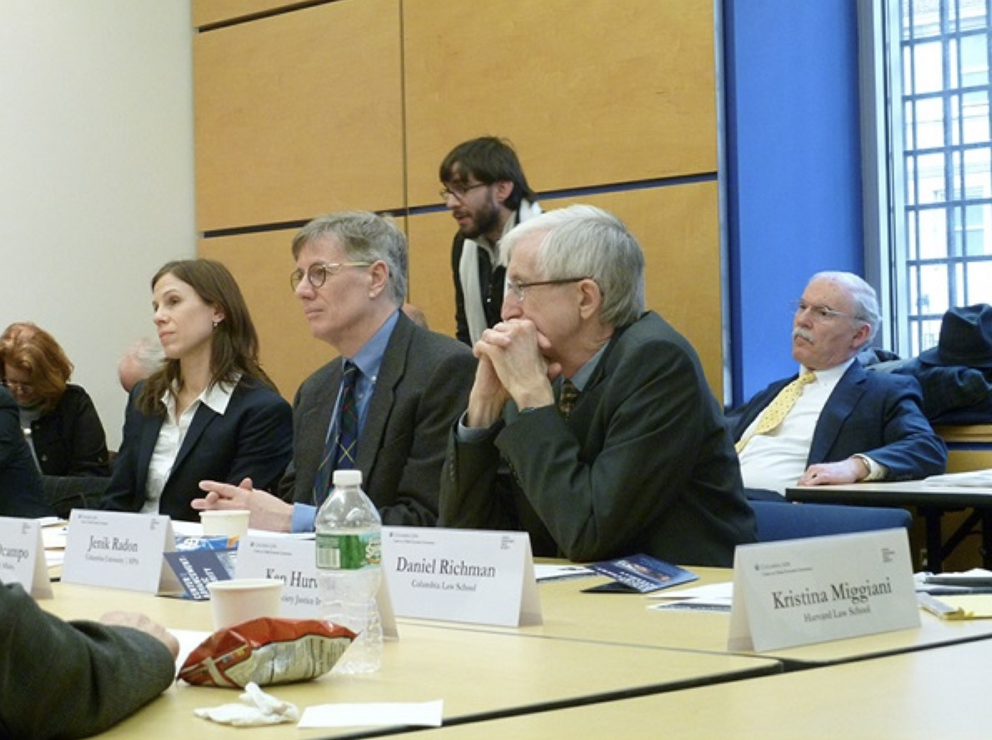Who would be targeted in a new International Anti-Corruption Court (IACC)? What can a future IACC learn from the International Criminal Court (ICC), and what definition of corruption would the IACC use? Is an IACC truly necessary if corrupt leaders are brought to justice by their own societies? These questions, among many others, were the topic of debate at a roundtable discussion on the proposal for an international court on anti-corruption, hosted by the Center on Global Economic Governance (CGEG) at Columbia's School of International and Public Affairs (SIPA) and the Center for the Advancement of Public Integrity (CAPI) at Columbia Law School on Monday, March 30th, 2015.
Read "The Case for an International Anti-Corruption Court" by Judge Mark L. Wolf (PDF).
The discussions centered around three key areas of focus related to the establishment and feasibility of an IACC. These touched on the specifics of the court, including issues of jurisdiction and general functions of an IACC; the complementary or discordant nature an IACC would present vis-à-vis the ICC; and the implementation process in establishing the court.
In opening the panel discussion, Paul Lagunes, Assistant Professor at SIPA, contextualized the main reasons for creating an IACC and urged the panelists to engage in questions related to state sovereignty, prosecution of private companies, and consensus-building with states who have generally been opposed to the creation of the ICC.
The lead advocate in heralding the creation of an IACC, Judge Mark L. Wolf, Senior United States District Judge on the U.S. District Court for the District of Massachusetts, presented his arguments to the panel stating that the reasons for the creation of the court were clear, “Grand corruption is costly. Indignation of corruption is destabilizing countries around the world and is a threat to national security.” The court, he argued, would be complementary to the activities undertaken by the ICC and would provide national governments with a fallback option in aiding states to prosecute criminals.
Bentley Macleod, Professor at Columbia University, moderated the panel and presented the first topic on the specifics of the court, opening a fruitful discussion among leading legal experts in the field on anti-fraud and corruption. Neil V. Getnick of Getnick & Getnick LLP and Rose Gill Hearn of Bloomberg Associates both acknowledged the viability and importance of the court’s creation, but raised questions as to who the IACC would effectively target, and what powers the IACC would need to have in order to seek restitution and forfeiture in cases that it covers.
The second area of discussion provided an opportunity for discussants to debate what an IACC could learn from the ICC, providing some structural guidance on moving forward. James Goldston, of Open Society Justice Initiative, posited that the IACC could complement the ICC by creating a less time consuming pre-trial period for the ICC. Jennifer Rodgers, Executive Director of CAPI, highlighted some roadblocks the court may face in subpoena and arrest powers, while Daniel Richman of Columbia Law School advocated for going after the seizure of assets, rather than corrupt officials themselves, as a deterrence to continuing corrupt practices.
Advocacy and implementation of an IACC, the last topic of discussion, allowed speakers to highlight some of the remaining questions regarding the agenda and appeal in establishing the court. Ken Hurwitz of the Open Society Justice Initiative emphasized that it would be difficult to garner the political will to prosecute CEOs of major multinational corporations, and even more difficult to track financial flows through the shadow banking system. Jenik Radon, of Columbia University, emphasized the importance of a holistic approach to the cultural and political aspects of corruption and the need to address legalized forms of corruption in the U.S., including lobbying and taxation. Roey Rosenblith of Not In My Country (NIMC) and Kristina Miggiani of Harvard Law School stressed that the IACC would be an important creation as it would be a viable alternative to revolution and political instability born out of corrupt governance.
Luis Moreno-Ocampo, the first Chief Prosecutor of the International Criminal Court, concluded the panel discussions by sharing some of his own experiences in prosecuting some of the largest and well-known corrupt officials in the world. Ocampo addressed the panel in calling on real leadership to gather political consensus and create a legal framework whereby states can better share information on corrupt activities. In closing the discussion, Judge Wolf remarked that what he proposes is not naïve, nor idealistic, quoting the late Vaclav Havel in proclaiming that, “Hope is not the conviction that something will turn out well but the certainty that something makes sense, regardless of how it turns out.”
— Rohan Kocharekar MIA ’15




